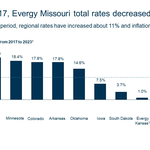From politics to major projects, it’s time for Indigenous inclusion in all spheres

by Margareta Dovgal – Resource Works
More News and Views From Resource Works Here
Two recent things are of special meaning for Canada’s Indigenous peoples — and should be for all Canadians.
First, there’s the election of Wab Kinew as premier of Manitoba. He’s the first provincial Premier who is First Nations to be elected in Canada.
Second, there’s a new push underway for the federal government to implement a system of loan guarantees so Indigenous communities can borrow money to invest in equity ownership in natural-resource projects.
Before becoming a politician, Premier Kinew was a rapper, a journalist and even worked in post-secondary administration. The message in his acceptance speech was beautiful, acknowledging first and openly a troubled past that included alcohol and court appearances.
“My life became immeasurably better when I stopped making excuses and I started looking for a reason. And I found that reason in our family. I found that reason in our community. And I found that reason in our province and country. . . .
“So to young people out there who want to change your life for the better, you can do it. But here’s the thing: you have to want it.
“If you want to leave the party lifestyle behind, it has to be you that makes the decision. If you want to join the workforce, get a new career, it has to be you that takes the first step. And if you are dealing with some kind of illness, and want to find healing, it has to be you to decide to move forward. I can’t do that for you. A government can’t do that for you. You have to be the person that decides to take the first step.”
Kinew said he wanted to share with those looking “for a positive path” what his father always told him: “Seek your vision.” Lastly, he said, “Dreams come true.”
All that is a powerful, powerful thing to say.
We are in a different era now, and it is up to all Canadians, Indigenous and non-Indigenous, including new Canadians, to determine how we can chart a better future for all, one that is equitable, inclusive, and mutually prosperous.
One path to further representation for Indigenous Canadians in our economy can be achieved in the coming decade, but it’s up to the federal government to make it happen: major project ownership and equity participation by Indigenous communities.
A diversely-backed campaign is now urging Ottawa to include oil and gas projects as eligible in a potential loan-guarantee system, something spearheaded by the Indigenous Resource Network, the First Nations LNG Alliance and others.
There have been fears that Ottawa will exclude oil and natural gas from such a loan program, to focus instead on supporting renewable and low-emissions energies, despite the overwhelming interest in Alberta, for example, from Indigenous communities who want to secure their own energy future on their own terms.
Indigenous leaders and groups want to see resource projects given fair play, particularly those in highly productive industries like oil and gas.
We hear from many communities that they want to be active players in the resource economy. They see enormous opportunities for jobs, skills development, and, of course, revenues that can be directed to all sorts of priorities.
That can be accomplished for them as owners and proponents in energy systems, whether domestic energy is produced for Canadian consumption or the very lucrative component of producing energy for global export.
That can include oil, natural gas, particularly liquefied natural gas (LNG) or even hydrogen in the form of ammonia, for export.
Leaders are asking the federal government to develop a national system of government-guaranteed loans. This mechanism would enable Indigenous Peoples to invest in equity ownership and partnerships in natural-resource projects.
Under the proposed program, communities could access funding at accessible low rates, with their borrowing backstopped by the federal government’s credit rating. That can be hard for small governments to achieve, and First Nations governments under the Indian Act in particular.
The goal is to establish a framework that enables and ensures that all Indigenous communities across the country can benefit equally from resource projects.
There are some provincial loan programs in Ontario, Saskatchewan and Alberta. Alberta’s Indigenous Opportunities Corporation has been the early innovator in this space, and we were proud to welcome them to speak at our Indigenous Partnerships Success Showcase, an annual conference to inspire economic reconciliation.
But provincial initiatives are different – and limited. Canada needs a system that allows communities of various sizes and with different levels of experience to get the massive benefits of plugging into the highly productive resource economy that this country is founded on.
We have a lot of work to do to reverse the decades-long exclusion of Indigenous Peoples from the economy.
What communities say they want to invest in should be respected. Imposed external policy prescriptions, with government saying, ‘We don’t like these kinds of investments, so you guys shouldn’t do them,’ is a kind of paternalism best left in the dustbin of history.
As Heather Exner-Pirot of the Macdonald-Laurier Institute notes, “No doubt environmentalists would treat exclusion as a win. But for Indigenous communities it would be taking billions of dollars in potential equity opportunities off the table.
“For many nations across the country, the oil and gas sector offers by far the best opportunities to generate revenues to fund things like housing, elder and cultural centres, student support and more — not to mention good jobs.”
Across so many different fronts, we’re on the path to meaningfully reflecting the cultural and ethnic diversity of our country, a country of First Peoples and a country of immigrants. Diversity, peace, and mutual prosperity are things to continue to work towards. We’re not there 100 percent, but we have all the conditions for success.
Your move, Ottawa.
Margareta Dovgal is Resource Works’ Managing Director and Event Lead for the Indigenous Partnerships Success Showcase.
Share This:




